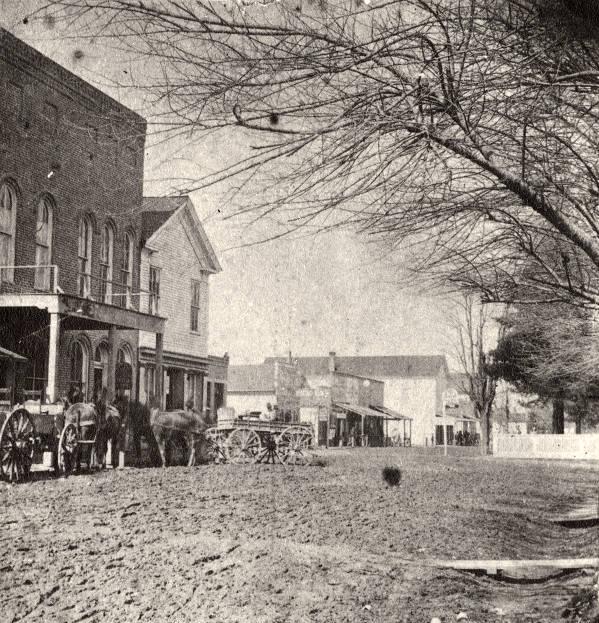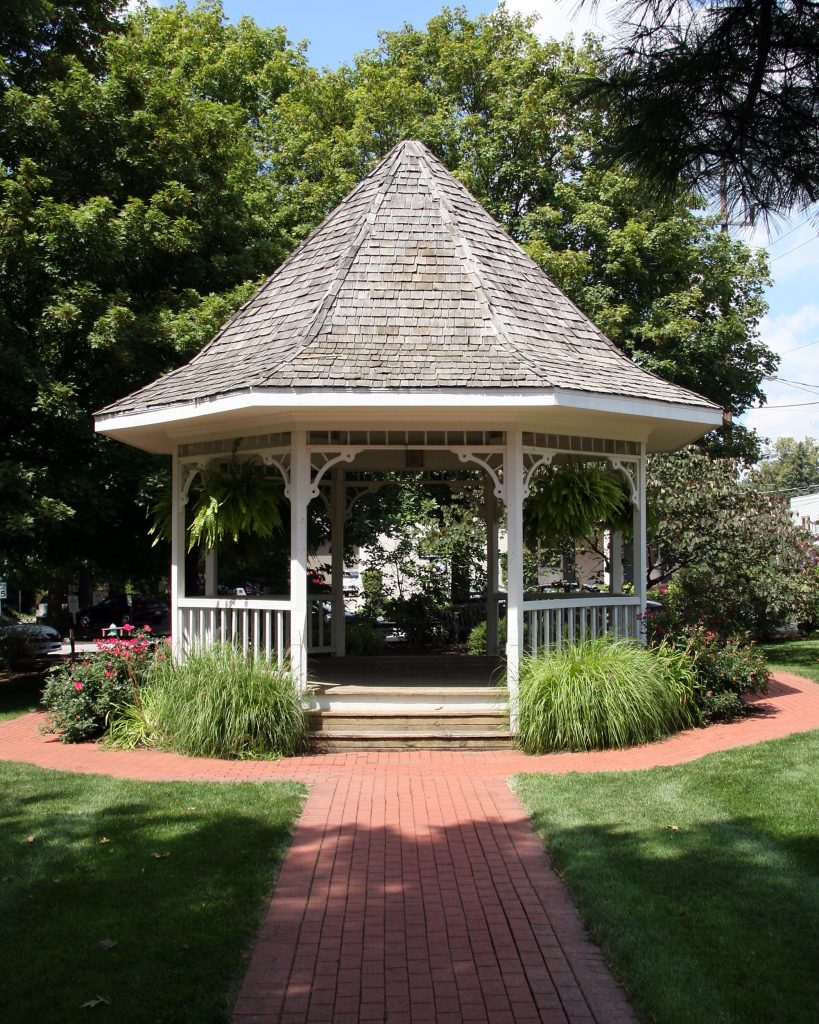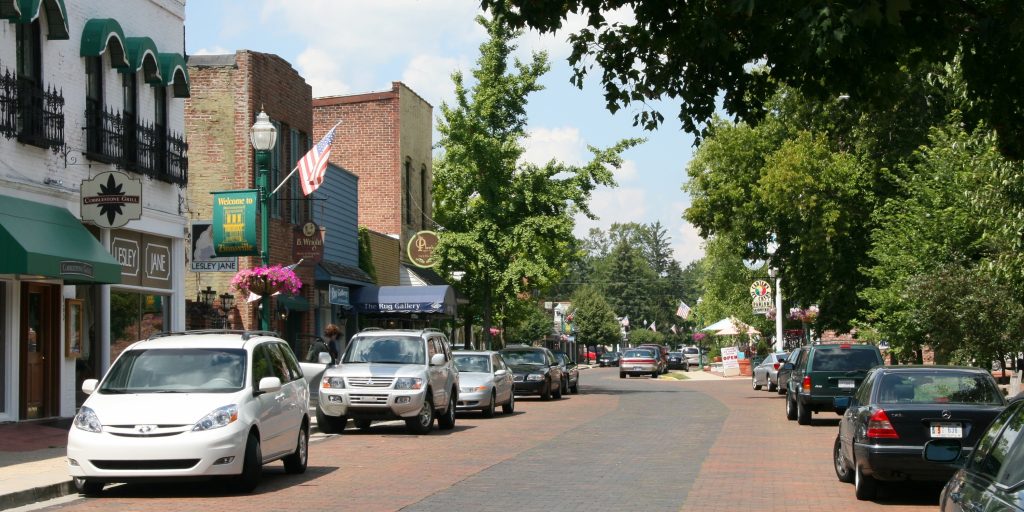Zionsville is a town located northwest of Indianapolis along S.R. 334 (116th Street). It began as a depot on the Indianapolis, Cincinnati, and Lafayette Railroad. In 1852, William Zion of Lebanon surveyed the Elijah Cross farm adjacent to the tracks. Sixty-four lots were laid out, and the name Zionsville was selected in honor of the surveyor. The first church was organized in 1854, the first school in 1858. A town newspaper, the , was founded in 1860. It has survived several name changes continuing as the .

Zionsville was incorporated in 1866 and grew slowly throughout the 19th and early 20th centuries. In 1880, the town counted 855 residents; by 1930, there were 1,131. Significant growth occurred after 1970 when new residential subdivisions more than doubled the population.
Zionsville’s popularity as a commuter suburb is due to several factors, including easy access to Indianapolis via interstate highways and the village’s quaint charm. Residents played an important role in the establishment of the town’s cultural organizations. Bequests provided for the founding of the Hussey-Mayfield Memorial Public Library and the Sullivan-Muncie Cultural Center. Residents also provided funds and volunteer assistance to establish a local historical society and municipal parks.
In the 1950s and 1960s, the Chamber of Commerce led a drive to remodel the downtown in an early American theme. Townspeople restored many of the 19th -century cottages and the village became a popular tourist attraction. Despite its rapid growth, Zionsville deliberately restricted residential and commercial development. Zoning laws blocked intrusive construction and new housing units have been limited to 50 per year since 1983.
A strong school system also has added to the town’s appeal. The Zionsville Community School district consists of five elementary schools, two middle schools, and one high school. The high school has had a near 100 percent graduation rate.

In 2007, the statewide backlash to increasing property taxes resulted in a 2010 Indiana State Constitutional amendment that capped property taxes. Zionsville, heavily reliant on property tax revenue generated from the assessed value of estate homes, was forced to reevaluate its restrictive commercial construction policies when the town began to lose revenue due to the statewide property tax cap. Zionsville implemented building permit quotas and big-box store construction bans.
In 2015, newly elected pro-growth town council members amended the town’s building policies. Zionsville absorbed the governments of two nearby townships, elevated town council member Jeff Papa to become Zionsville’s first mayor, and promoted commercial development in the newly engulfed areas.

The neighboring town of faced a similar shrinking budget dilemma. An almost two-year battle for land commenced in 2013 between Whitestown and Zionsville when Whitestown annexed land up to the Zionsville border and within the coveted Zionsville school district. The protracted battle culminated in 2016. At that time, land in Boone County’s unincorporated and undeveloped Perry Township became the center of a land dispute. Whitestown disputed Zionsville’s attempt to annex the township based on a lack of adjacency.
The Indiana Supreme Court, however, upheld Zionsville’s merger with Perry Township stating that the 3.5-mile-long-by-150-foot wide strip of land connecting in Zionsville to Boone County in Perry Township sufficiently established the minimum adjacency required for annexation. The merger landlocked Whitestown within Zionsville and added 15 square miles to Zionsville for a total of 71 square miles.

Is this your community?
Do you have photos or stories?
Contribute to this page by emailing us your suggestions.

